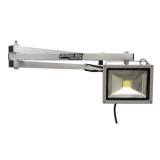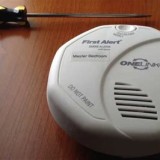Arm Problems From Computer Use: Essential Aspects
Working at a computer can provide many benefits, but it can also take a toll on your physical health. With long hours spent typing, clicking, and scrolling, you can develop a variety of arm problems, including pain, stiffness, and numbness.
The good news is that these issues can be largely prevented or treated with the right precautions and interventions. By understanding the causes of arm problems and taking steps to protect yourself, you can keep your arms healthy and pain-free.
1. The Causes of Arm Problems From Computer UseArm problems from computer use typically develop because of repeated motions, awkward postures, and poor ergonomics. Repeated typing or mouse use can strain the muscles, tendons, and nerves in your arms, leading to conditions such as carpal tunnel syndrome or tendinitis.
Awkward postures, such as holding your arms in an unnatural position for long periods, can also contribute to arm problems. This could include hunching over your keyboard or straining to reach your mouse.
Poor ergonomics, or the setup of your workspace, can also play a role. If your chair is not adjusted properly, or if your monitor is not at the right height, you may be more likely to develop arm problems.
2. Preventing Arm Problems From Computer UseThe best way to prevent arm problems from computer use is to take steps to protect your body. Here are some tips:
- Take frequent breaks. Get up from your desk and move around every 20-30 minutes. This will help to prevent your muscles from getting fatigued and strained.
- Use proper ergonomics. Make sure your chair is adjusted so that your feet are flat on the floor and your thighs are parallel to the ground. Your monitor should be at eye level, and your keyboard and mouse should be positioned so that your elbows are bent at a 90-degree angle.
- Use a wrist rest. This can help to support your wrists and prevent them from becoming strained.
- Stretch your arms and hands. Take a few minutes every hour or so to stretch your arms and hands. This will help to keep your muscles loose and flexible.
- Strengthen your arm muscles. Doing exercises that strengthen the muscles in your arms can help to prevent them from becoming injured. Some simple exercises include wrist curls, reverse wrist curls, and arm circles.
If you do develop arm problems from computer use, there are a number of treatments available. These include:
- Rest. The best way to treat arm problems is to rest the affected area. This means avoiding activities that aggravate your pain.
- Ice. Applying ice to the affected area can help to reduce inflammation and pain.
- Heat. Applying heat to the affected area can help to relax muscles and relieve pain.
- Massage. Massaging the affected area can help to improve circulation and reduce pain.
- Physical therapy. A physical therapist can teach you exercises to help strengthen the muscles in your arms and improve your range of motion.
- Medication. In some cases, your doctor may prescribe medication to help relieve pain and inflammation.
Arm problems from computer use are a common problem, but they can be largely prevented or treated with the right precautions and interventions. By understanding the causes of these problems and taking steps to protect your body, you can keep your arms healthy and pain-free.

10 Tips To Healing Mouse Elbow Break Your Computer Pain Cycle

Ccohs Office Ergonomics Computer Mouse Common Problems From Use

How To Ergonomically Fix Arm Pain Caused By Using A Mouse Takeaseat Sg

Computer Elbow Can My Hurt From Typing Too Much Top Doctors

How To Prevent Repetitive Strain Injury From Computer Work Motionworks Stittsville Ottawa Physiothe

Computer Related Injuries And Its Prevention Sign Symptoms Orthopaedic Treatment In Overuse Problems At Ahmedabad Shreeji Hospital

Ergonomics And Arm Pain Safety Efficiency Sportcare Pt

6 Tips To Relieve Computer Elbow Pain From Typing At Work Effydesk

3 Ways To Fix The Neck Shoulder Pain You Feel While Working From Home

Create An Ergonomic Workstation And Alleviate Hand Arm Pain
Related Posts








